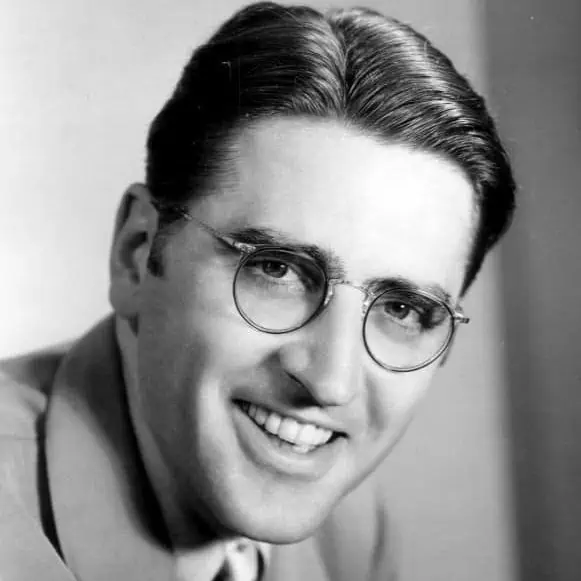Meredith Wilson
Composer, songwriter, conductor, and wind instrumentalist
Personal Life
Born in Iowa on the 18th of May 1902, Robert Reiniger Meredith Willson was quick to pick up his wind instruments. Learning the piccolo and flute as a young boy, his high school days saw him refine his technique as part of a marching band. Once his 17th birthday arrived, Wilson swiftly relocated to New York City, where he would begin his education at the Julliard School (known at the time as the Damrosch Institute of Musical Art).
Here, he would be taught by the famous Georges Barrère amongst others and would wed his high school girlfriend just a year after, though the two would eventually separate. Soon after his marriage, Wilson would join up with the band of John Philip Sousa.
Career
Meredith Wilson is widely known for penning the music, lyrics and book for 1958’s musical The Music Man. However, he is also beloved for his radio work, classical compositions, and film scores. Also a songwriter, his works have been performed by many artists from Frank Sinatra to the Beatles.
Touring internationally with his bandleader John Sousa in the early 20s, between 1924 and 1929, he became the main flautist for both the New York Chamber Music Society and the New York Philharmonic Orchestra. Working as a radio station director throughout the 30s, he would spend time in San Francisco and Hollywood before the advent of movie soundtracks gave him a new outlet for his talents.
Nominated for an Academy Award in Best Original Score with 1940’s The Great Dictator soundtrack, the following year would see Wilson nominated once again for Best Music Scoring of a Dramatic Picture with his work for The Little Foxes. After WWII service Wilson would be a bandleader on the Burns and Allen show before once again directing the music of radio shows, this time adding TV to his workload.
While working at the Hollywood Bowl, Wilson met the writer Franklin Lacey, who contributed to early drafts of his musical The Music Man. Opening on Broadway in 1957, this colossal show would take home six Tony Awards and even won Wilson the first-ever Grammy Award for Best Original Cast Album. His 1960 follow-up musical entitled The Unsinkable Molly Brown was another success, and Wilson would succeed this with Here’s Love in 1963.
Outside of theatre, Wilson also wrote classical compositions across many genres and styles. Symphonies, chamber music, orchestral suites and even hymns were all penned by the man. Wilson would also produce several variety specials for the CBS network in 1964.
Passing away twenty years later, on the 15th of June 1984, his works were posthumously honoured with a Presidential Medal of Freedom in 1987. The Juilliard School of Music even built its 2005 student residence hall in his name.

Did You Know?
As well as being ‘the music man’, Wilson was also very much a man of God. Attending and serving as a deacon for the Westwood Hills Congregational Church in Los Angeles, he now has his very own stained glass ‘Music-Man Window’ above a specially built pew!

Meredith Wilson Recordings
Quick Guide...
Music Lessons




